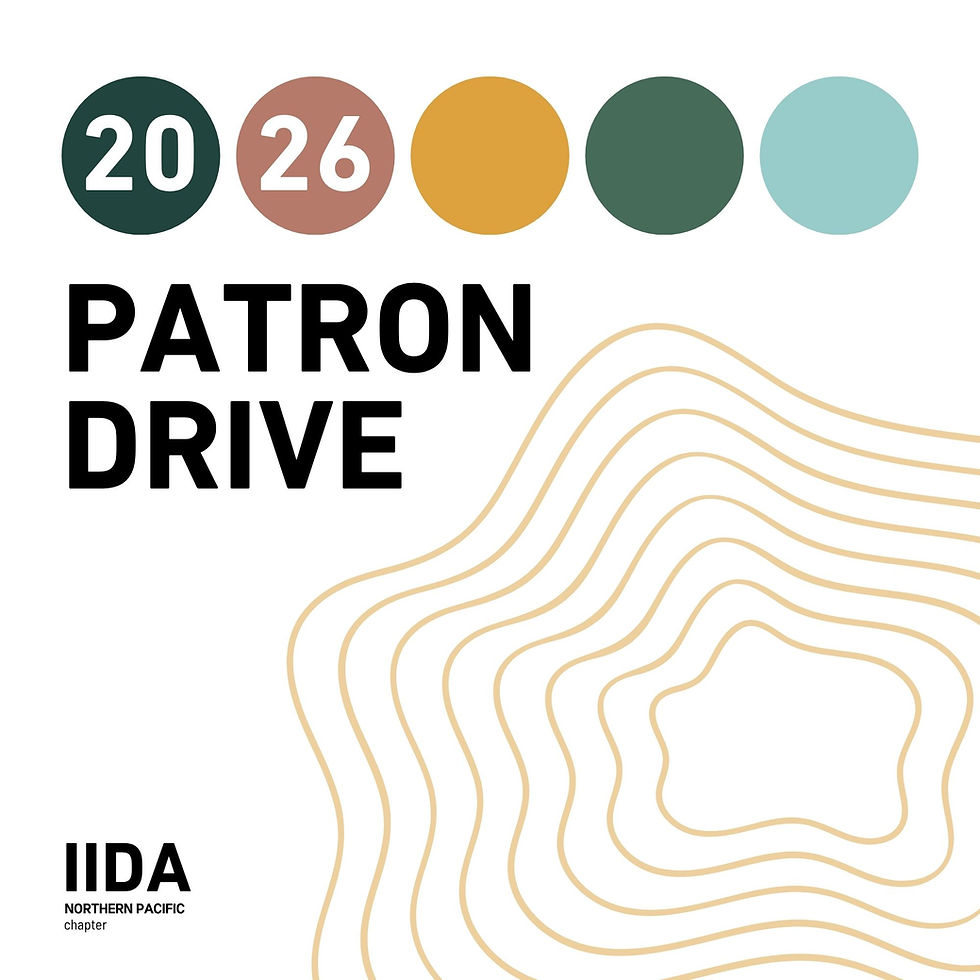
ADVOCACY

Interior Design regulation at the state level helps establish and maintain professional standards that protect the health, safety and welfare of the general public. IIDA firmly believes that legal recognition, achieved through registration and certification, brings uniformity to the profession, defines responsibility of an interior designer, and encourages excellence in the Interior Design industry. The IIDA Northern Pacific Chapter Advocacy Committee is dedicated to enacting interior design legislation in the States of Alaska, Idaho, and Washington State.
Become NCIDQ Certified
Begin with NCIDQ Certification, the industry’s recognized standard of proficiency in interior design principles and the designer’s commitment to the profession. IIDA NPC supports interior designers in pursuing NCIDQ certification. Click here to learn more about our Professional Development resources.
For more information visit the CIDQ website.
WHAT DOES A COMMERCIAL INTERIOR DESIGNER DO?
Interior design encompasses the analysis, planning, design, documentation, and management of interior non-structural/non-seismic construction and alteration projects in compliance with applicable building design and construction, fire, life-safety, and energy codes, standards, regulations, and guidelines for the purpose of obtaining a building permit, as allowed by law. Qualified by means of education, experience, and examination, interior designers have a moral and ethical responsibility to protect consumers and occupants through the design of code-compliant, accessible, and inclusive interior environments that address well-being, while considering the complex physical, mental, and emotional needs of people. (CIDQ)

Take Action

Listen with us

Interior Design Lesiglation: Part 1
Kendra Shea, IIDA NPC Past President, shares a quick history of the interior design profession and how regulation has evolved across the U.S. She also breaks down different types of design legislation and the key players shaping the movement. Don't miss it! Also receive a 0.5 CEU credit by listening and logging on the IIDA HQ website.
Interior Design Lesiglation: Part 2
Kendra Shea, IIDA sits down with IIDA Northern Pacific Chapter leaders Megan Onley, President & Matt Thompson, Immediate Past President to dive into what’s happening right now in interior design legislation across WA, ID, AK, and OR. From where each state stands to bill language and how you can get involved, they cover it all! Also receive a 1 CEU credit by listening and logging on the IIDA HQ website.
Upcoming Advocacy Events
Resources
Thank you to our sponsors
First Tier Sponsors - HOK, Integrus, NAC
Third Tier Sponsor - Integrus, Mohawk, Wilsonart
Fourth Tier Sponsors - DLR Group, HOK, NAC
Fifth Tier Sponsors - Helix, HOK, NAC

















